
Herman J. Cohen
Diplomacy, to put it mildly, is an incredibly tough and often thankless business. Negotiating with an adversary can often feel like “mission impossible,” an exercise in futility where the only result after hours of jaw-boning is high blood pressure and an overpowering migraine.
While Ambassador Zalmay Khalilzad, now the U.S. Special Representative for Afghanistan Reconciliation, doesn’t show it, it’s highly likely that his sojourns to the Middle East, Europe, and South Asia in search of a still elusive peace agreement in Afghanistan are taking a toll.
His six rounds of peace talks with the Taliban have been ridiculed from the sidelines from high-profile dignitaries as varied as a former Pakistani ambassador to the U.S. and former U.S. ambassador to Afghanistan Ryan Crocker. Even Afghanistan’s own national security adviser has vocally expressed his exasperation at how the U.S.-Taliban talks are being handled.
And yet despite all the second-guessing and grousing in speeches and on the op-ed pages, nobody has come up with a better solution to the direct negotiations now ongoing – one that fulfills Washington’s core national security objectives in Afghanistan and provides the Afghan people with an opportunity to break the 40-year pattern of violence.
It’s easy to look at Afghanistan and see a basket-case. Its security forces are overstretched and sustain dozens – sometimes hundreds – of casualties a week. Despite $132 billion in U.S. reconstruction aid, the country’s basic infrastructure is dilapidated. More girls are going to school, but excessive violence is preventing many children from getting an education. Billions of dollars have been misappropriated on faulty projects with little return, adding more doubt in the minds of Americans about whether the entire 18-year U.S. adventure in Afghanistan was an exercise in hubris.
All of this, however, only justifies Washington’s decision to talk with the Taliban – an uncomfortable situation to be sure, but one we can’t avoid.

The fact is that after such extensive sacrifice and investment over such a long period of time, the American people, including Trump himself, are losing whatever patience they have for the routine troop deployments en route to Afghanistan. It would have been diplomatic malpractice for the Trump administration to have squandered the small opening created last fall to begin an overdue conversation with the Taliban.
The U.S. was wise to engage in bold diplomacy. But it the courageous decision to launch a diplomatic process could have resulted in catastrophe if Washington recklessly signed any deal the Taliban put on the table.
Fortunately, after nearly eight months, Khalilzad and his team remain steadfast on the bottom-line U.S. position: no agreement will be acceptable to the American side if the Taliban don’t denounce their two decade-long relationship with al-Qaeda and use their power on the ground to prevent Afghanistan from becoming a terrorist threat to the American people or the region.
The United States, in coordination with the Afghan government and the international community, must now press the Taliban on agreeing to the kinds of security arrangements and monitoring protocols that will give every power with a stake in Afghanistan some confidence of the Taliban’s sincerity in meeting its obligations. Without implementation, agreements are just pieces of paper.
The real nuts-and-bolts of the Afghan peace process – what the country’s political system will look like after a U.S. troop withdrawal; whether the Afghan constitution will be amended; whether balance-of-power arrangements at the central, provincial, and district levels will have to be reformed; and the extent to which Taliban fighters will be reintegrated into the Afghan army and police – must be undertaken by the Afghans themselves.
Although the Taliban are opposed to speaking with President Ashraf Ghani’s administration, the organization has engaged with opposition politicians and former political luminaries on several occasions. Washington should encourage these types of discussions, for why they don’t include Kabul in an official capacity, they at least establish groundwork for further talks in the future. Between now and Afghanistan’s presidential elections in September, these talks will likely be the only intra-Afghan dialogue available.

Washington can’t be the arbiters of Afghan political disputes. It is not America’s responsibility to build Afghanistan into a modern-day, prosperous regional power in Central Asia. But in the course of their own negotiations with the Taliban, Khalilzad should not hesitate to set markers for what the U.S. expects at the end of the Afghan peace process.
If the Taliban hope to become a legitimate political actor, it must understand that Afghanistan will not go back in time to the time when the movement ruled most of the country. All Afghans must be accorded equality under the rule of law. And the rights and protections afforded to women and minorities are now irrevocable parts of Afghan society. Washington must deliver the message that an Afghan government that disregards these broad principles will be highly unlikely to receive the economic assistance from the West it will desperately need post-conflict.
Ambassador Khalilzad’s effort is a work in progress. His persistence aside, the effort could very well fall apart for a number of reasons, including but not limited to the Taliban’s insistence that it can still achieve its objectives militarily. There are no sure things in a negotiation, particularly when the subject is ending a generation-long war in Afghanistan.
What we can be sure of is the alternative – more fighting – is really no alternative at all.
 U.S. Ambassador (ret) Herman J. Cohen, a 38-year veteran of the Foreign Service, was a former Assistant Secretary of State for African Affairs and a fellow at the American College of National Security Leaders.
U.S. Ambassador (ret) Herman J. Cohen, a 38-year veteran of the Foreign Service, was a former Assistant Secretary of State for African Affairs and a fellow at the American College of National Security Leaders.
All views and opinions expressed in this article are those of the author, and do not necessarily reflect the opinions or positions of The Defense Post.
The Defense Post aims to publish a wide range of high-quality opinion and analysis from a diverse array of people – do you want to send us yours? Click here to submit an Op-Ed.

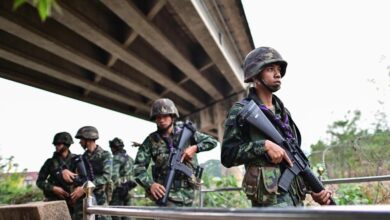

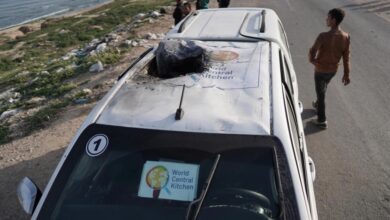
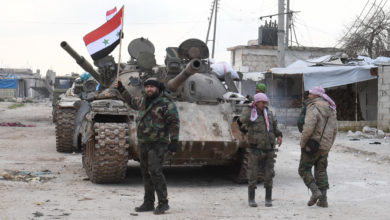



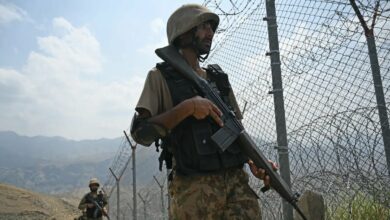

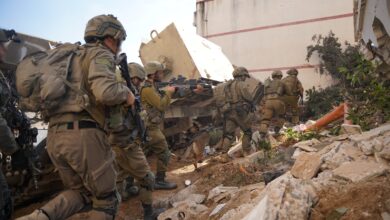

3 Comments